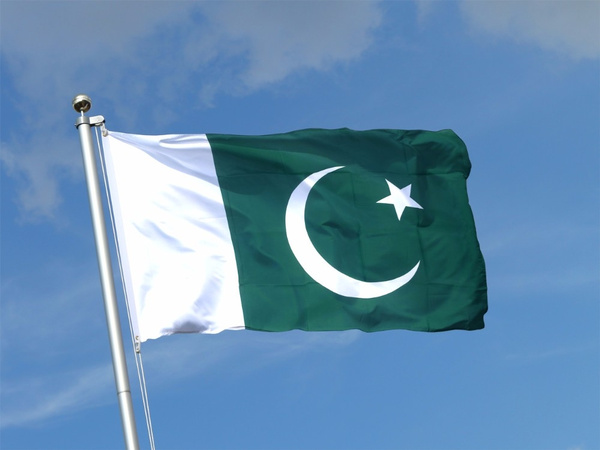
For decades Pakistan has argued that it is part of the Greater Middle East not South Asia – as being part of the former means closer relations with Muslim countries while in South Asia, Pakistan has to acknowledge India’s pre-eminence.
While it is true that Pakistan had close security and economic relations with the Gulf Arab countries during the Cold War things have changed over the last two decades. India’s relations with the Gulf Arab countries – especially Saudi Arabia and the UAE have changed dramatically.
As a recent column by the Director of Milli Chronicle Media London notes, “alliances and friends are always calibrated.”
Historically every time the Gulf Arab leaders visited India; they would also visit Pakistan. However, during the G20 summit in Delhi in early September, Saudi Crown Prince Mohammed Bin Salman Al-Saud and the President of the United Arab Emirates (UAE) Mohammed Bin Zayed Al-Nahyan, visited India and returned, while there was no halt in Pakistan.
Tanvir notes there are various reasons for the growing indifference towards Pakistan in the Arab region.
“There could be multiple reasons ranging from the lack of governance to the rise of religious extremism, from anti-Arab sentiments to the perceived threat of exploitation of Arab resources. Experts have started to speculate about the growing distance between the Arab nations and the Islamic Republic of Pakistan.” However, Saudi Arabia and UAE are unlikely to forsake Pakistan fully, because of its strategic location, its status as a nuclear-armed nation, and its role as a major Muslim country in South Asia.
As Tanvir argues, “the apparent indifference of Arab nations towards Pakistan in recent years can be largely attributed to concerns about Pakistan’s stability and governance. Pakistan has grappled with a series of formidable challenges, resulting in an unstable political landscape and hindered economic progress. Consequently, this has led to a diminished level of credibility on the global platform. The primary contributors to this instability are rooted in internal issues, including corruption, political discord and governance deficiencies. No prime minister in Pakistan has served the full term. They were either cooed or assassinated. The prevailing “dog-eat-dog” phenomenon within Pakistan has, regrettably, acted as a regressive force, pulling the nation back into what feels like medieval times. This cutthroat environment, marked by ruthless competition has hampered the country’s progress and development. Just like any other nation, Arab countries seek to engage in partnerships with nations that exhibit stability and reliability, as these qualities are pivotal in fostering positive contributions to regional development.”
Further, Tanvir notes “Arab countries’ perceptions of Pakistan are influenced significantly by the concept of loyalty and reliability as a friend. Historically, Saudi Arabia, in particular, has been a steadfast supporter of Pakistan, offering substantial support, including financial bailouts and significant investments. However, Pakistan’s ongoing challenges in repaying loans and recurrent financial crises have raised legitimate questions about its loyalty and commitment as a trusted partner.”
Furthermore, “Under the leadership of Prime Minister Imran Khan, Pakistan found itself embroiled in what can only be described as a concerning period marked by anti-Arab sentiments and propaganda campaigns, particularly targeted at Mohammed bin Salman (MBS), the Crown Prince of Saudi Arabia. These actions not only raised eyebrows but also contributed to animosity and mistrust in international relations. One notable incident during this time was Pakistanis’ criticism of the United Arab Emirates decision to allow the construction of Hindu temples within its borders. While nations must have the freedom to make sovereign decisions regarding their domestic affairs, such criticisms suggested a lack of sensitivity to the UAE’s cultural and religious diversity. Similarly, Pakistanis’ vocal opposition to the normalisation of diplomatic relations between the UAE and Israel further exacerbated criticisms.”
What hurt ties even more is when “a significant portion of the YouTube community actively promoted Islamist figures such as Israr Ahmed, Mirza Engineer Jhelumi and Khadim Rizvi among others. These individuals often espoused extremist views, exemplified by the use of the term “Waelul-lil-Arab,” which translates to “Destruction is for the Arabs”. So-called Pakistani YouTube analysts like Mubashir Luqman and Imran Riaz Khan played a significant role in painting Mohammed bin Salman as a deviant figure who was allegedly tampering with the tenets of Islam. The baseless conspiracy theories that claimed MBS was constructing the NEOM city to welcome Dajjal – ‘Anti-Christ’, gained traction and had a substantial online following. This misinformation campaign, fuelled by these analysts, contributed to the spread of false narratives against the Arabs. Such rhetoric not only further deepened the divide but also undermined the prospects of fruitful diplomatic relations.”
Finally, Tanvir argues, “while Indians, Americans, British, Sri Lankans and others typically come to these nations, earn their livelihoods and eventually return to their home countries, Pakistani expatriates sometimes exhibit a different mindset—one that involves laying claims over the resources of Gulf nations. This trend has not gone unnoticed, and there are concerns that it could potentially lead to problems in host countries. Moreover, many Pakistanis behave or act as if they are the sole protectors of Islam and Muslims. They often talk negatively about Arab leaders and governments in their private conversations, criticising them for not following Islam as they see it.”
In conclusion, Tanvir notes, “Pakistan needs to understand that it can get the respect and attention it wants from Arab nations and the rest of the world by being a responsible and reliable country. On the contrary, India has shown that it can keep its promises and work well with other countries, which has made people notice and respect India on the world stage. Pakistan can learn from India and aim to be a trustworthy partner that helps its region grow and stay peaceful.”
![]()





